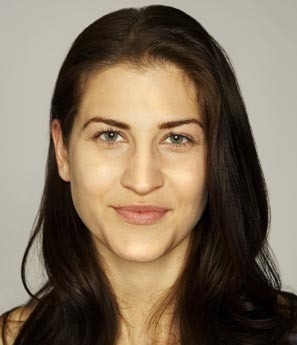Mac McClelland Wins June Sidney for Mother Jones Story About the Impact of the Oil Spill on Fishermen’s Wives in the Gulf
NEW YORK: The Sidney Hillman Foundation announced today that Mac McClelland has won the June Sidney award for “Depression, Abuse, Suicide: Fishermen’s Wives Face Post-Spill Trauma,” published on MotherJones.com. McClleland’s piece details the way the oil spill in the gulf has affected individual households, from a shortage of food for fishermen’s families to disputes with BP over the size of relief checks – as well as a surge in reports of domestic violence, up in some places by 320%.
Sidney Judge Charles Kaiser said, “McClelland succeeds in putting a human face on the tremendous toll taken on fishermen’s families by this environmental catastrophe” – a toll which already includes the suicide of an Alabama charter boat captain.
McClelland shows the way the oil spills has created familial conflicts – including disputes over whether or not idled fisherman should work for BP to help clean up the spill:
Young, fresh-faced Julie with the toddler on her lap doesn’t want her husband doing cleanup anyhow. She tells him to stop doing it because it’s dangerous. He says, “How do you want me to feed you?” She says, “How are we gonna eat when we’re dead from chemical contamination you’re bringing into the house?” He says, “We’ll live on the check.”
At this point in Julie’s re-creation of this daily fight, everyone yells, “But we’re not getting the check!”
McClelland is the human rights reporter for Mother Jones magazine. She did extensive reporting about the devastating impact of Hurricane Katrina. She has also written dispatches from Malaysia, Australia, Thailand, Micronesia, and Bhutan, about everything from the handsome young Bhutanese king to South Pacific conservation initiatives. She is the author of For Us Surrender Is Out of the Question: A Story From Burma’s Never-Ending War (Soft Skull Press), which describes how U.S. sanctions have done nothing to reduce oppression in that war-torn nation. She has also written for The Nation, GQ South Africa, and The Daily Beast, among other publications and websites. McClelland is a resident of San Francisco.
The Sidney Award is given once a month to an outstanding piece of socially-conscious journalism by the Sidney Hillman Foundation, which also awards the annual Hillman Prizes every spring. For more information please, click here.
For an interview with McClelland about the piece click here.
Backstory
JUNE, 2010
Mac McClelland discusses her story about the wives of fishermen who have been affected by the oil spill in the Gulf of Mexico.
1.Why did you decide to look into fishermen’s wives?
Originally, I was just looking into counseling for everyone in the area; I’d heard, from living here the last couple months, that clinics still providing services for Katrina victims were having to retool and ramp up their efforts for locals newly traumatized by the oil disaster. But no sooner had I talked to any of the counselors than I realized that most of these services were going to women, whose husbands are more reluctant to seek psychological assistance.
2. What surprised you as you did your research?
I got emotionally overwhelmed faster than I would have guessed. I lived in New Orleans during Katrina, and am well aware of what it’s like when that deep hopelessness sets in, but I hadn’t expected it to be so much worse this time around. The scope of this disaster and the scale and duration of the impact it’s going to have on affected people has just slammed the whole coast with despair. I had to sit on the notes for the story for two weeks, because every time I tried to write it, my own Katrina trauma issues rushed in, and I got too upset.
3. What has the response been since you published it?
One of the counseling organizations thanked me for portraying the situation so frankly and honestly, which meant a lot. Also, one of my readers sent a giant shipment of toilet paper to one of the clinics, in response to my reporting that these hard-on-cash families couldn’t procure it with the grocery vouchers they get from charity.
4. Is there something you wish you had room to include in the piece but could not?
My editors were great about letting me include as much detail and information as I wanted, no matter how long I went on or how depressing it got. But I’d love to spend more time with the women involved; I could’ve followed any one of them for weeks.
5. If you went back to this story in another year, what would you want to follow-up on?
I definitely want to keep an eye on these clinics’ financial situations. As it is, they’re woefully underfunded, and now - in the midst of the media coverage of the spill - should be the easiest time to get grants and donations. It’s very possible their funding needs will continue to be unmet, and budget constraints on these crucial mental-health services could be devastating for the region’s survival and recovery.
MotherJones.com


